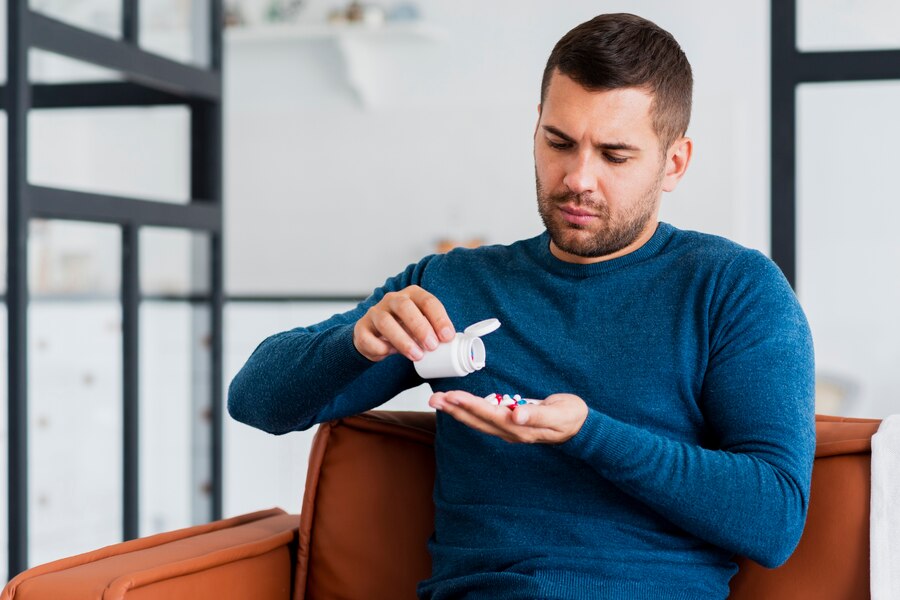Can You Quit Drugs Without Rehab?
The journey to sobriety is a very personal one, and many individuals question whether it is possible to quit drugs without rehab. Rehabilitation programs provide a structured support system, but there are other paths to recovery that some may consider. This blog looks at the possibility of quitting drugs without formal rehab and highlights the benefits of utilizing a sober living home in the recovery process.
The Reality of Quitting Drugs
The quitting process is quite complex and deals with physical, emotional, and psychological challenges. Many individuals have been successful at quitting on their own, but many others claim that services offered at the rehabilitation centre boost their chances of never quitting drugs again.
Determination Factors
There are a number of factors which might help determine whether quitting without rehab is possible for anyone. These include:
Users who face severe substance addiction cases often end up with withdrawal. The effects can be dangerous and fatal. A healthy support system that usually consists of family, close friends, or other community supporters would make all the difference. Self-determined people who want something might actually stay sober easily compared to others.
A strong urge to get out of the addiction, plus a commitment to sobriety, can enable a person to quit drugs without professional help. At times, however, motivation to quit is low, thereby making professional help important.
Co-Occurring Disorders
Many people with addiction disorder have mental disorders. When such disorders co-occur, they make recovering difficult and hence, professional support is more important.
The challenges of quitting on your own
However, quitting drugs on your own is possible, although quite challenging. For those seeking a more common struggle encountered by individuals during withdrawal, here are a few to consider:
- Symptoms of withdrawal: Withdrawal symptoms can be quite severe and even life-threatening. The symptoms differ from one substance to the other. For instance, some substances, such as alcohol and opioids, are so potent that physical symptoms need safe handling by a doctor. Quitting independently may lead to a relapse or other fatal health effects.
- Lack of Structure: Structure and routine are important factors, as lacking them can make it harder to stay sober. Through rehabilitation programs, therapy support groups, and accountability provide a framework for recovery. Without this structure, commitment to goals is often the main challenge.
- Triggers and Temptations: Perhaps the most challenging triggers are environmental cues such as people, places, or relationships associated with drug use. Relapse temptation in such a scenario can be extremely overwhelming without support.

Why Use Sober Living Home?
A sober living home might be a very effective alternative for those who recognize the need for support but may not wish to enter a traditional rehab program. Such homes allow those in recovery to gradually develop the skills required to maintain sobriety while easing back into everyday life.
Structured Environment
Sobriety homes provide a structured setting that encourages recovery. There are usually house rules such as curfews, chores, and participation in house meetings that residents must observe. The structured setting provides an opportunity for setting a routine, which is the most important aspect of maintaining sobriety.
Community Support
The sober home offers the person an environment in which he can be surrounded by other people who have the same objective. Such an environment would provide accountability and support for discussion of the challenges experienced and success stories. Group activities and discussions help make the recovery experience better since the residents can learn from one another.
Life Skills
Sober living houses emphasize skill building, skills that will be essential to an independent life. Skills in job searching, budgeting, and effective communication skills will be provided for residents. These are crucial elements of maintaining sobriety and successfully reintegrating back into society.
Availability of Resources
Many sober living homes are connected with local resources like therapies, support groups, and job placement services. A participant can tap into all this as they move ahead into their recovery journey to develop the holistic support system they might need.
Importance of a Holistic Recovery Strategy
It is absolutely possible to quit drugs without entering rehab, but quitting such substances requires a holistic strategy. This would entail;
- Professional Support: Seek professional help in therapy, counseling, or support groups. Professional help provides the tools and strategies for coping with challenges and maintaining sobriety.
- Support Network: A strong support network of friends, family, and peers in recovery will make a big difference in your ability to stay sober. Regular communication and check-ins with supportive individuals will provide accountability and encouragement.
- Realistic Goals: Set achievable short-term goals and track your progress. You will then find motivation and celebrate each success, no matter how small.
Although it is possible to become sober without rehab, quitting drugs can certainly be a very difficult task. For many people, sober living homes provide a bridge between rehabilitation and independent life, offering support and structure. Through community development, life skills enhancement, and connection to integral resources, sober living homes may also make the recovery process much smoother for individuals.
The necessity of seeking help, be it through rehab, sober living, or any combination thereof, is a factor in gaining and maintaining sobriety for the long term. And every step along the path to a healthy, drug-free life certainly deserves some celebration.


